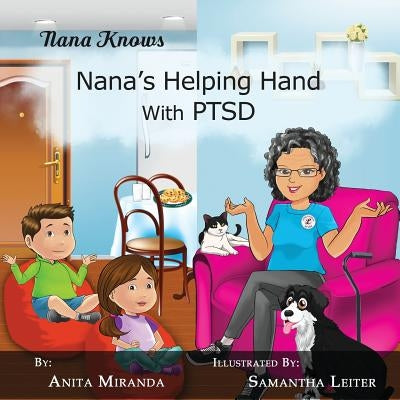Living Disabled Publishing
Nana's Helping Hand with PTSD: A Unique Nurturing Perspective to Empowering Children Against a Life-Altering Impact
Nana's Helping Hand with PTSD: A Unique Nurturing Perspective to Empowering Children Against a Life-Altering Impact
Couldn't load pickup availability
Author: Samantha Leiter, Anita Miranda
Publisher: Living Disabled Publishing
Published: 06/15/2015
Pages: 80
Binding Type: Paperback
Weight: 0.47lbs
Size: 8.50h x 8.50w x 0.21d
ISBN: 9780692461884
About the Author
Anita Miranda and Living Disabled Publishing are proud to announce a NEW SERIES OF EDUCATIONAL CHILDREN'S BOOKS dealing with "Living Disabled in Our Home," inaugural release of first in a 10-volume disability series with Nana's Helping Hand, a retired, disabled Navy Female Veteran. "The time is now to educate our children regarding living with Post Traumatic Stress Disorder (PTSD) in the home" says Anita Miranda, in regards to the first book of the series, "Nana Knows: Nana's Helping Hand with PTSD," which focuses on Post-Traumatic Stress Disorder and what it means to our children. Psychological trauma, in all its forms, is both invisible to the eye and non-selective in those it afflicts. Alarmingly, many parents try to disguise or deny their disability, despite the problems it can cause. More veterans have returned home in recent years, many of whom have been or will be diagnosed with PTSD, a form of psychological handicap which, until recently, was known strictly as a military disability. Those enduring the symptoms of PTSD include both civilians and law enforcement personnel, like in the case of Phoenix Police Officer Craig Tiger, a man who ultimately took his own life. It is widely agreed amongst mental health experts that PTSD is a very real concern in first responders, according to CBS 5 (KPHO Broadcasting Corporation). PTSD diagnoses are on the rise, while 15% of the world's population is living with a major disability of one sort or another. The odds are high that a family member or friend falls within the aforementioned 15% figure. Such a high percentage, and so harsh a reality, demands a reevaluation of just how it is we, as a society, deal with disabilities. "PTSD does not have a cure and will not go away but the treatments today allow functionality and a sense of well-being to accomplish any task. You just have to do the work. There is no pill or an easy way. We must begin in our home with our children and those who love us," says Anita.
This title is not returnable
Share


